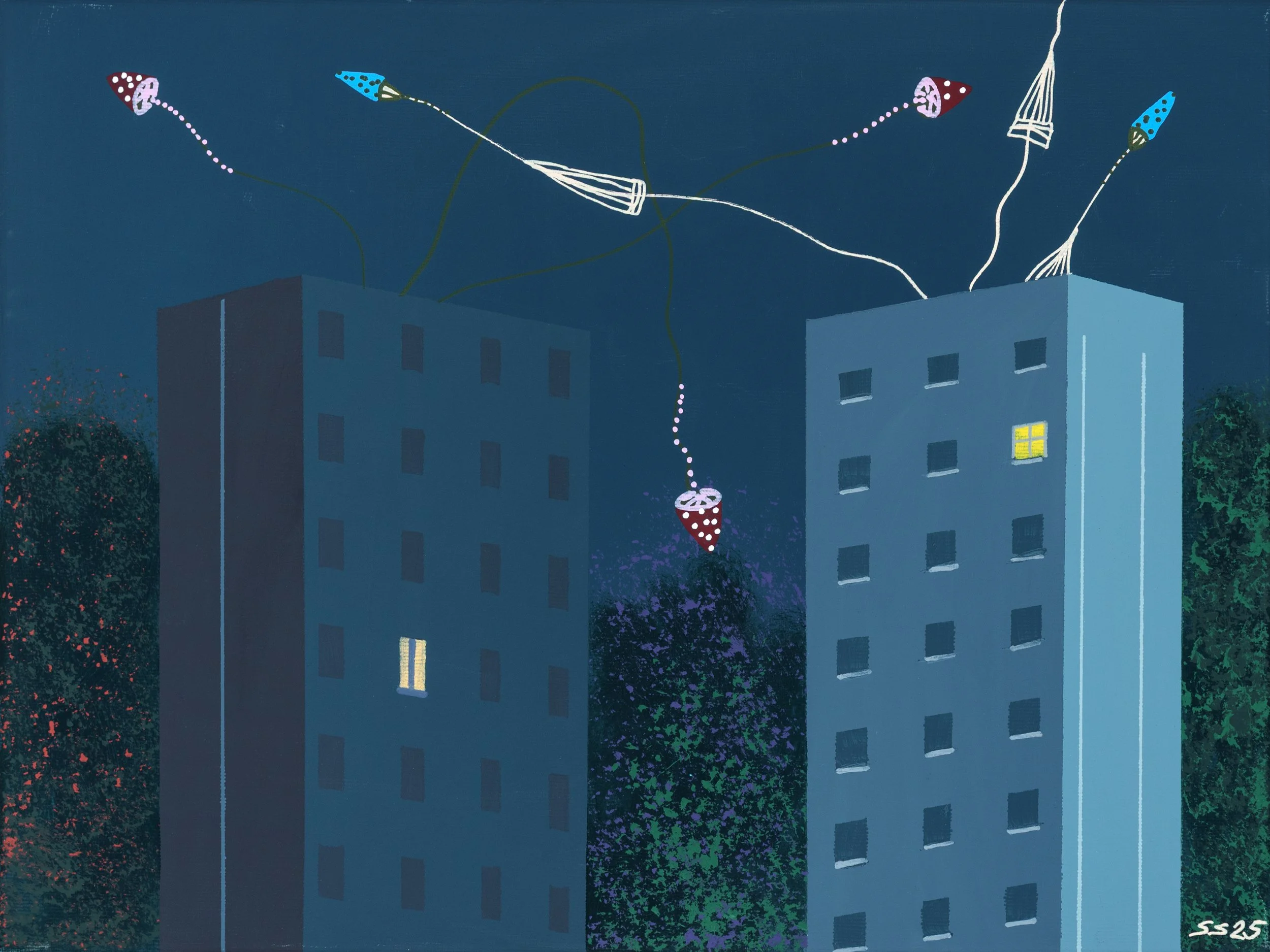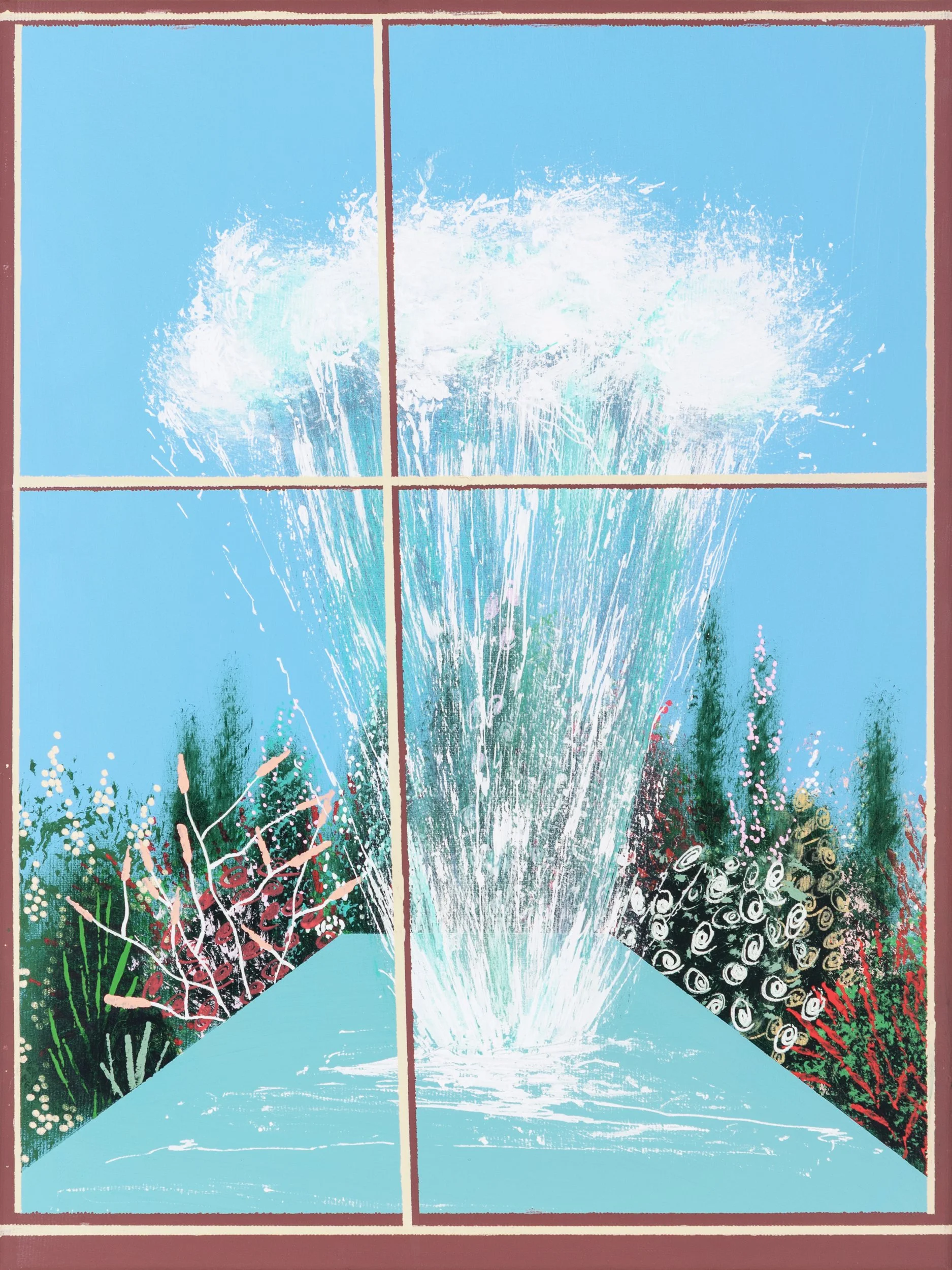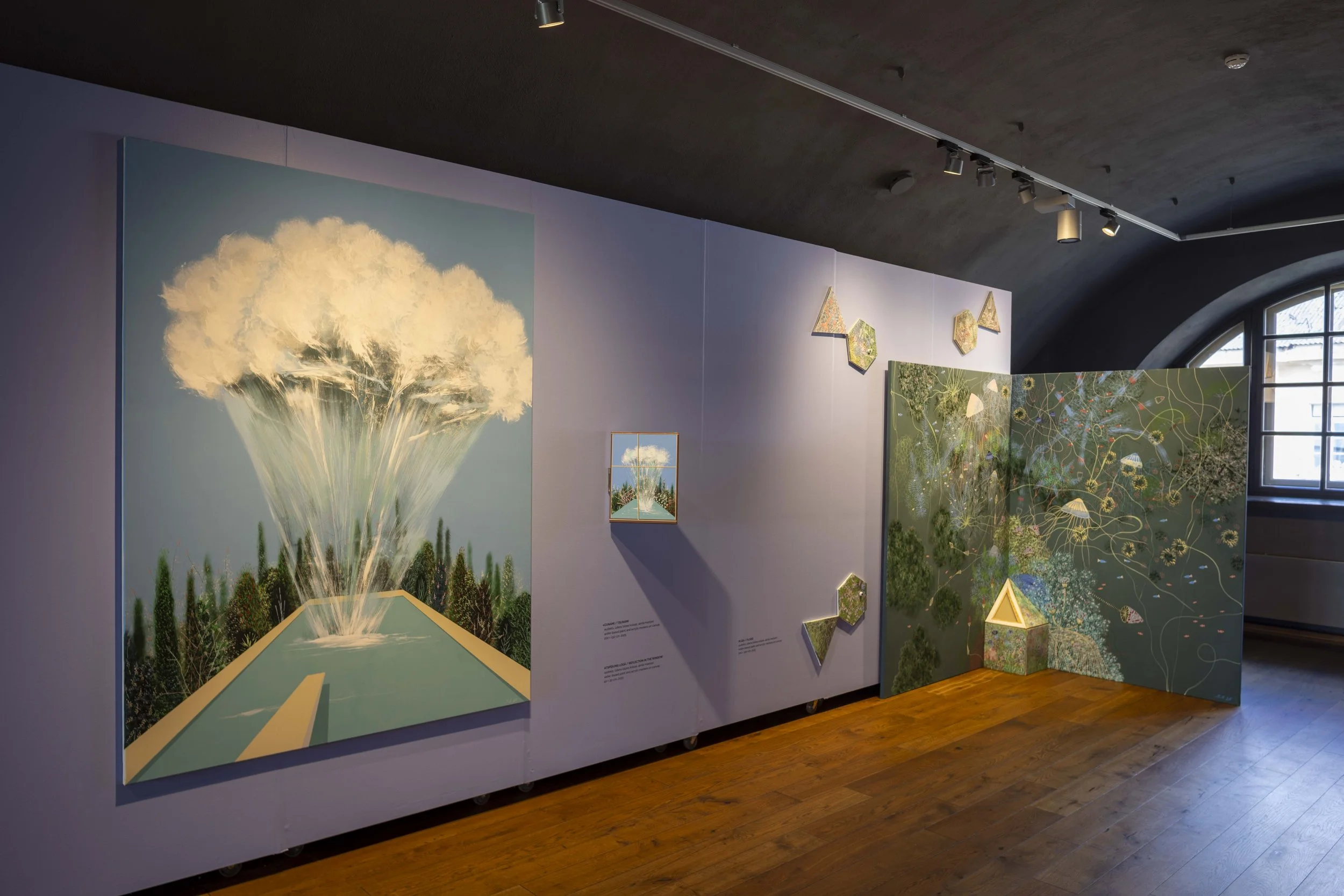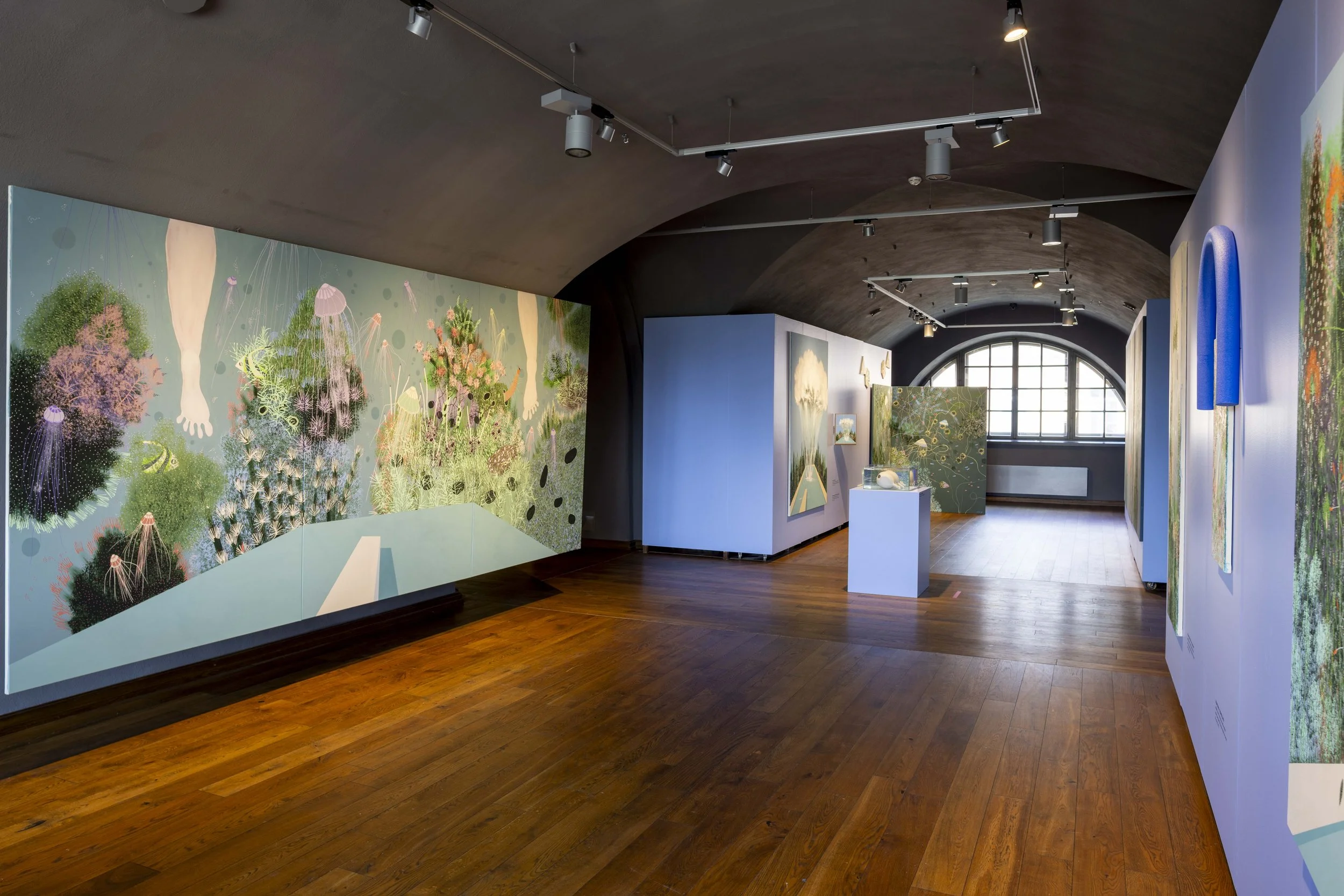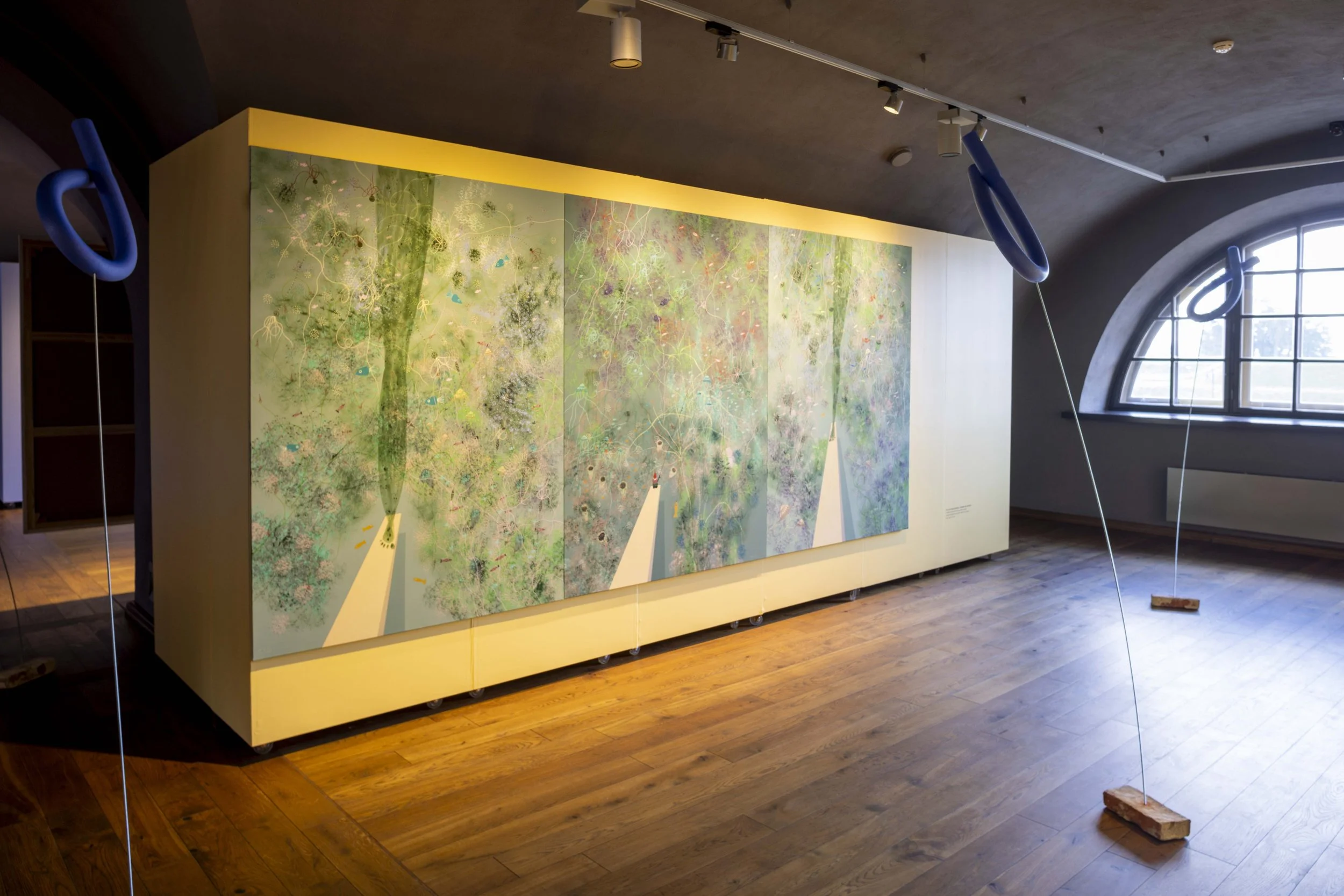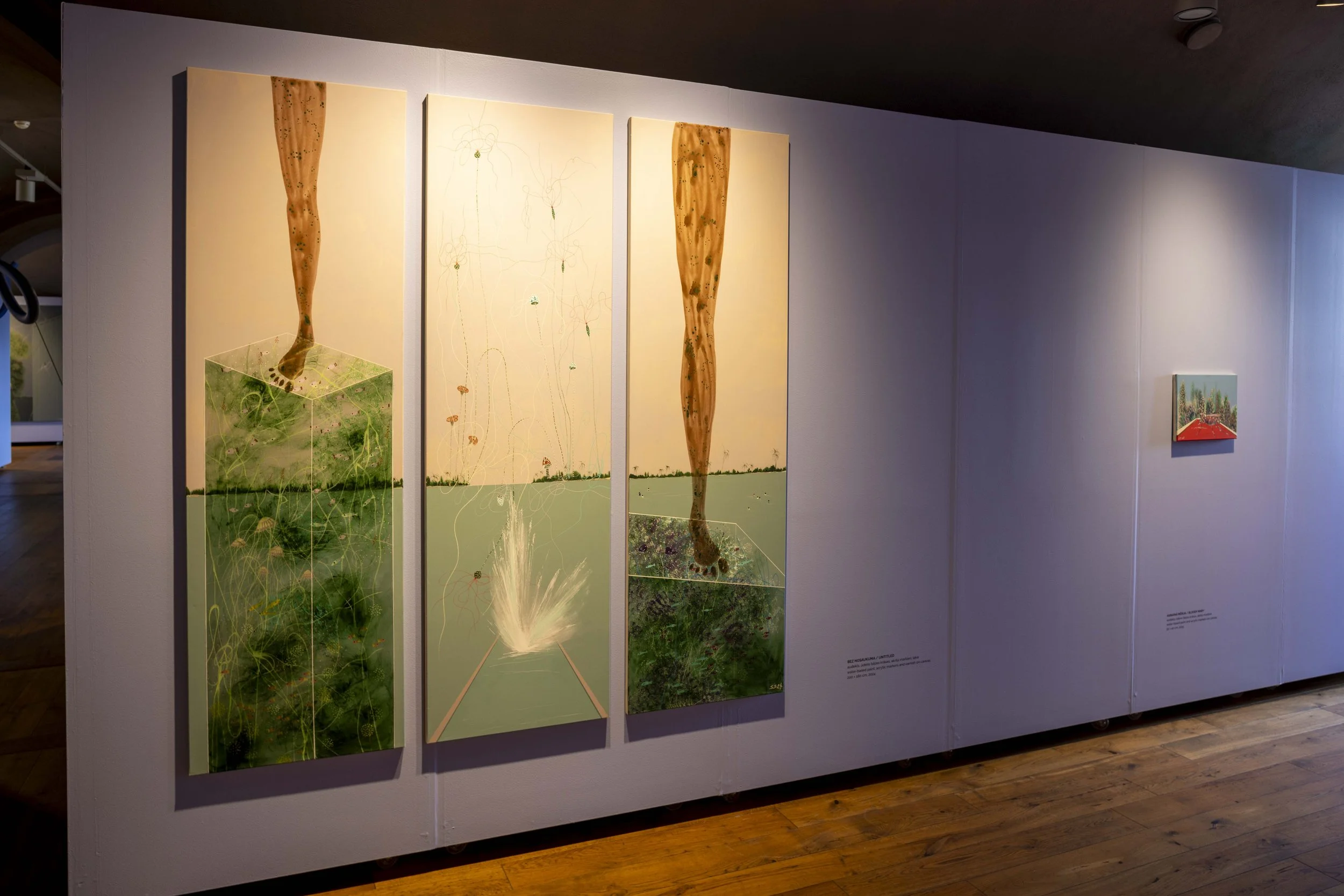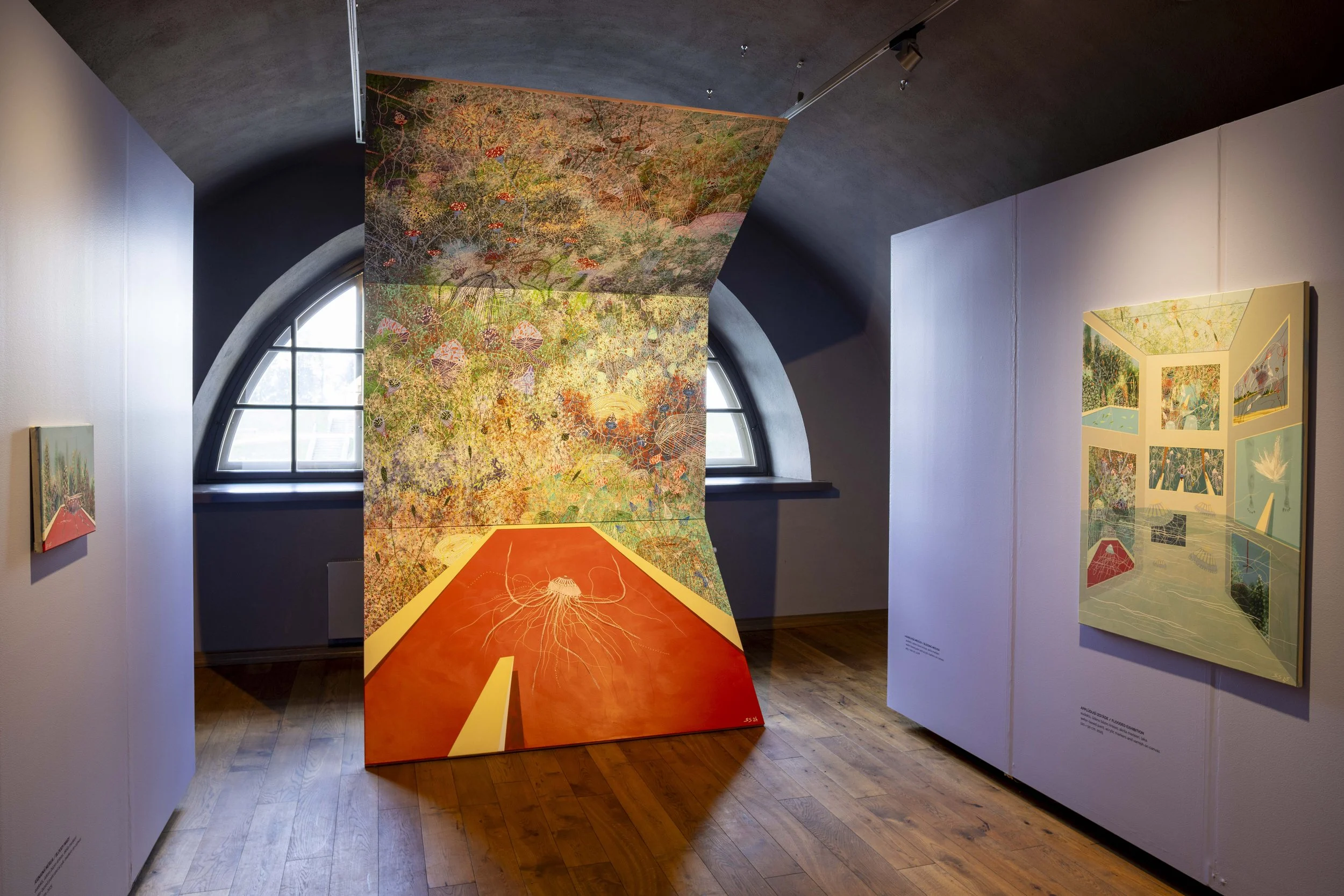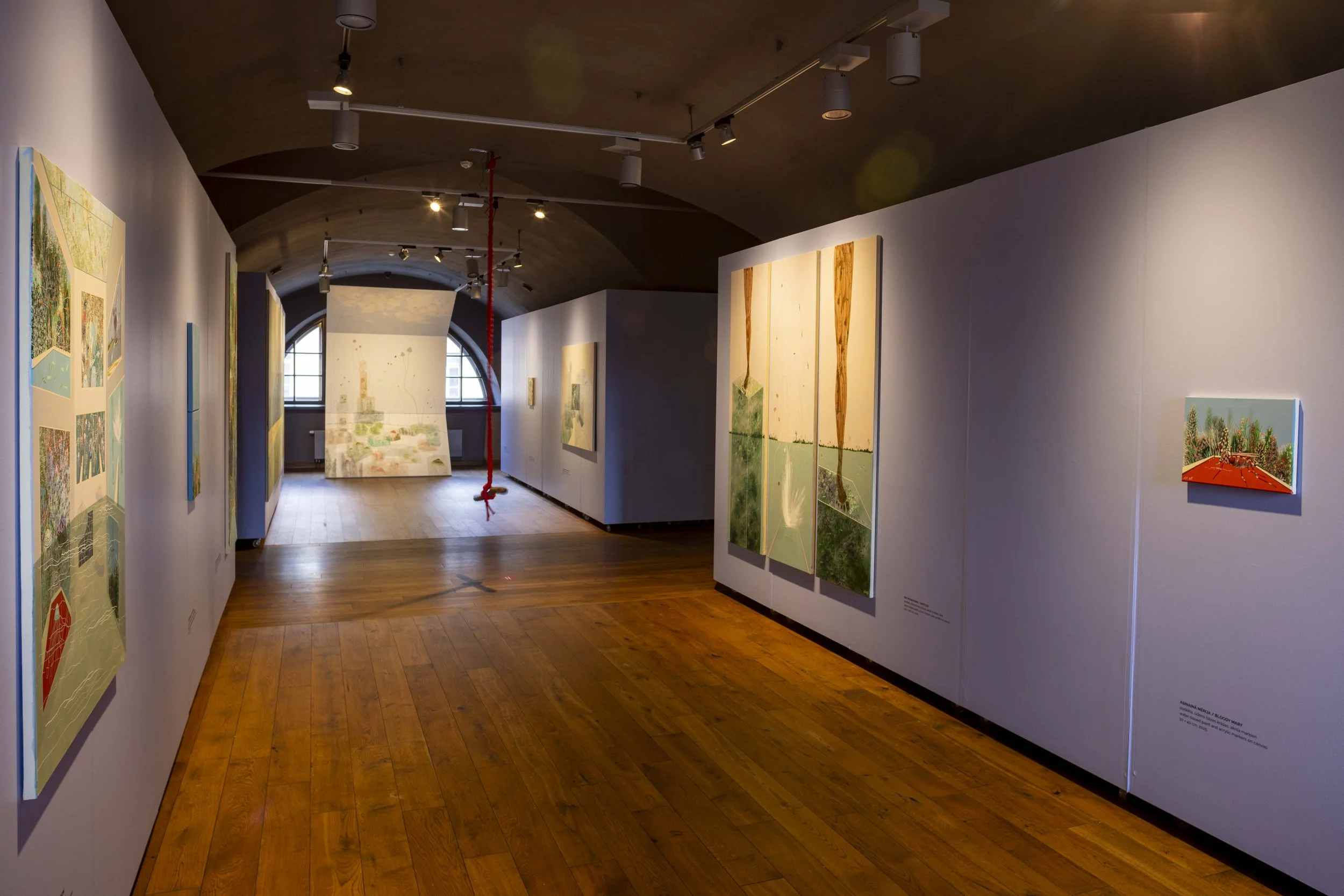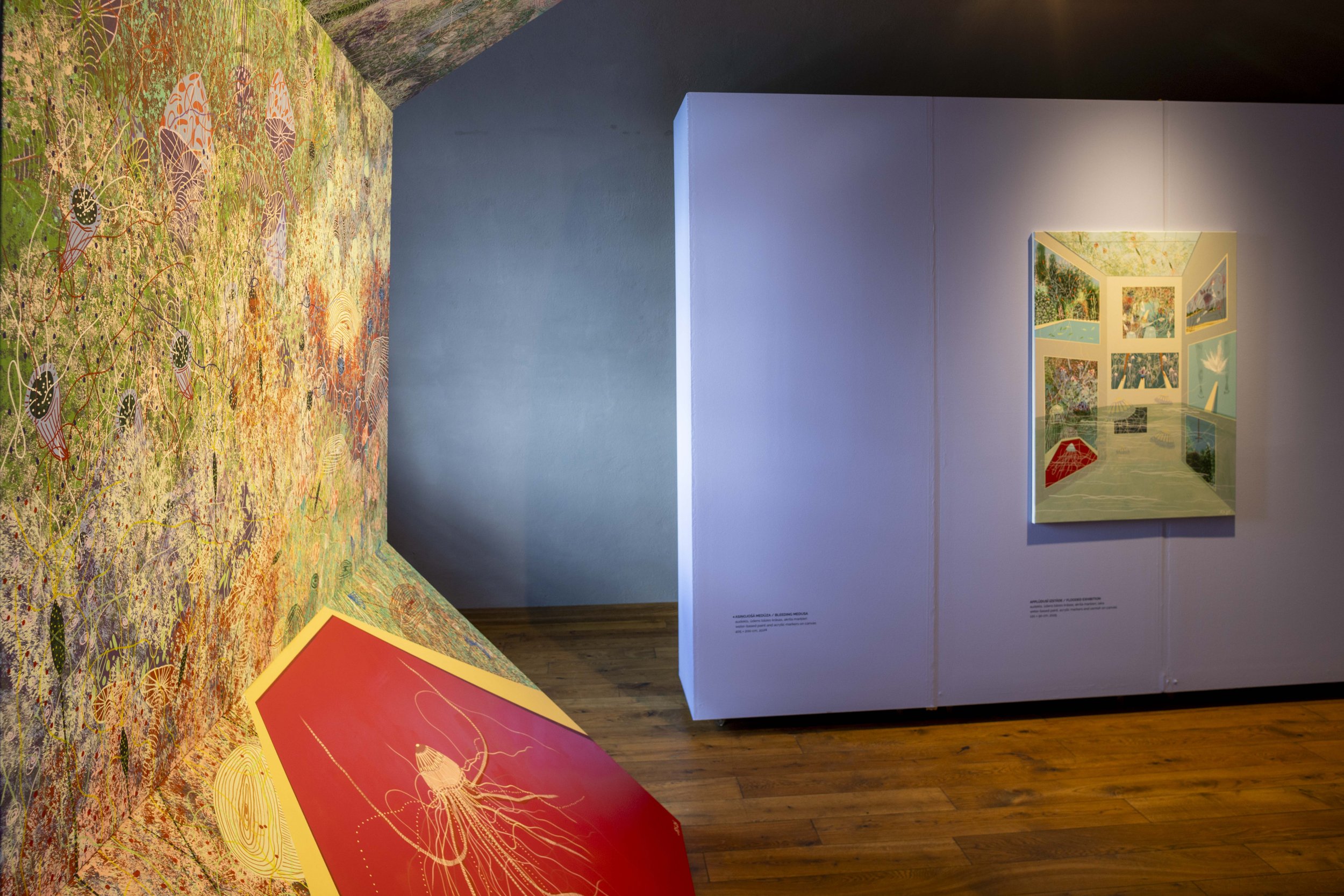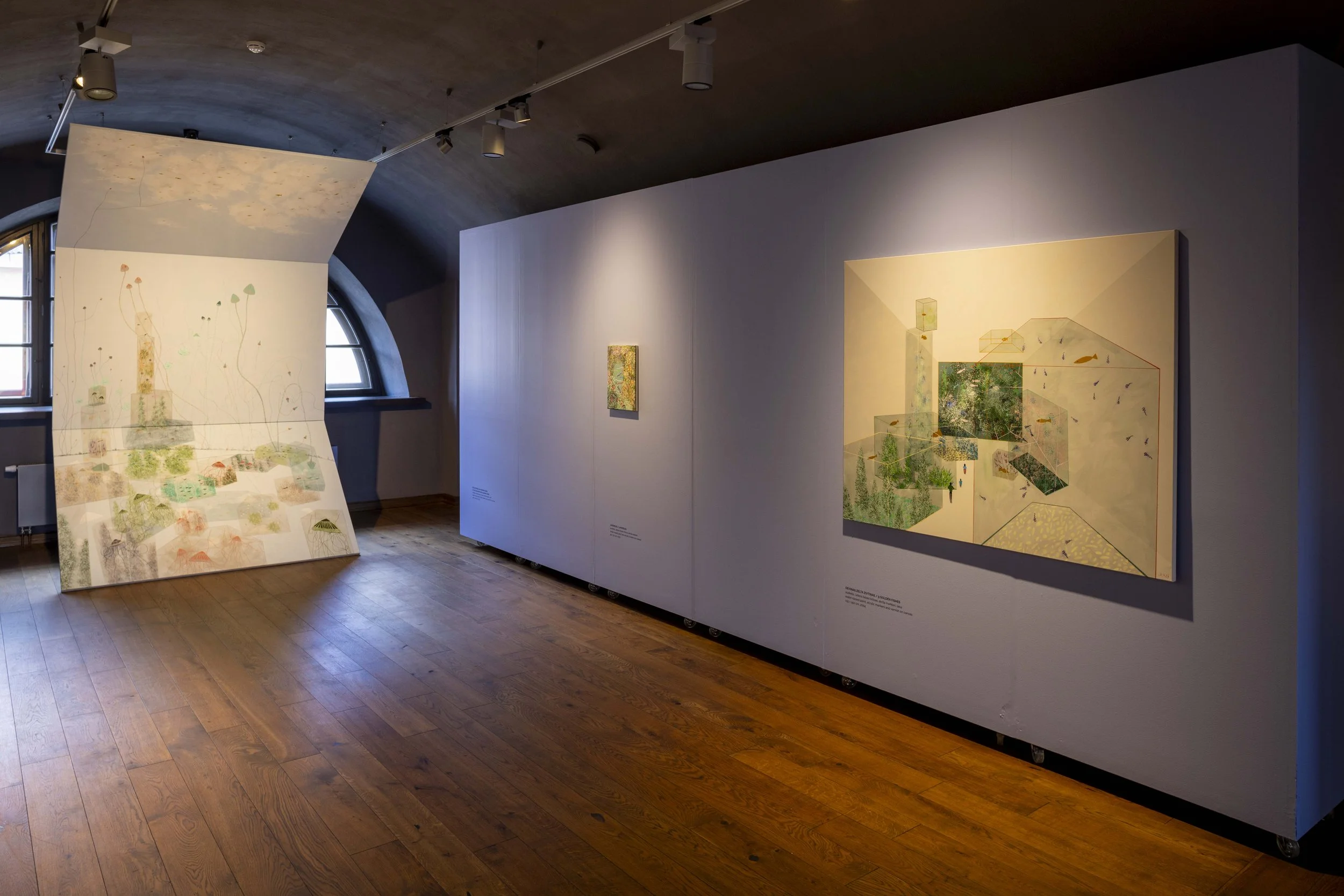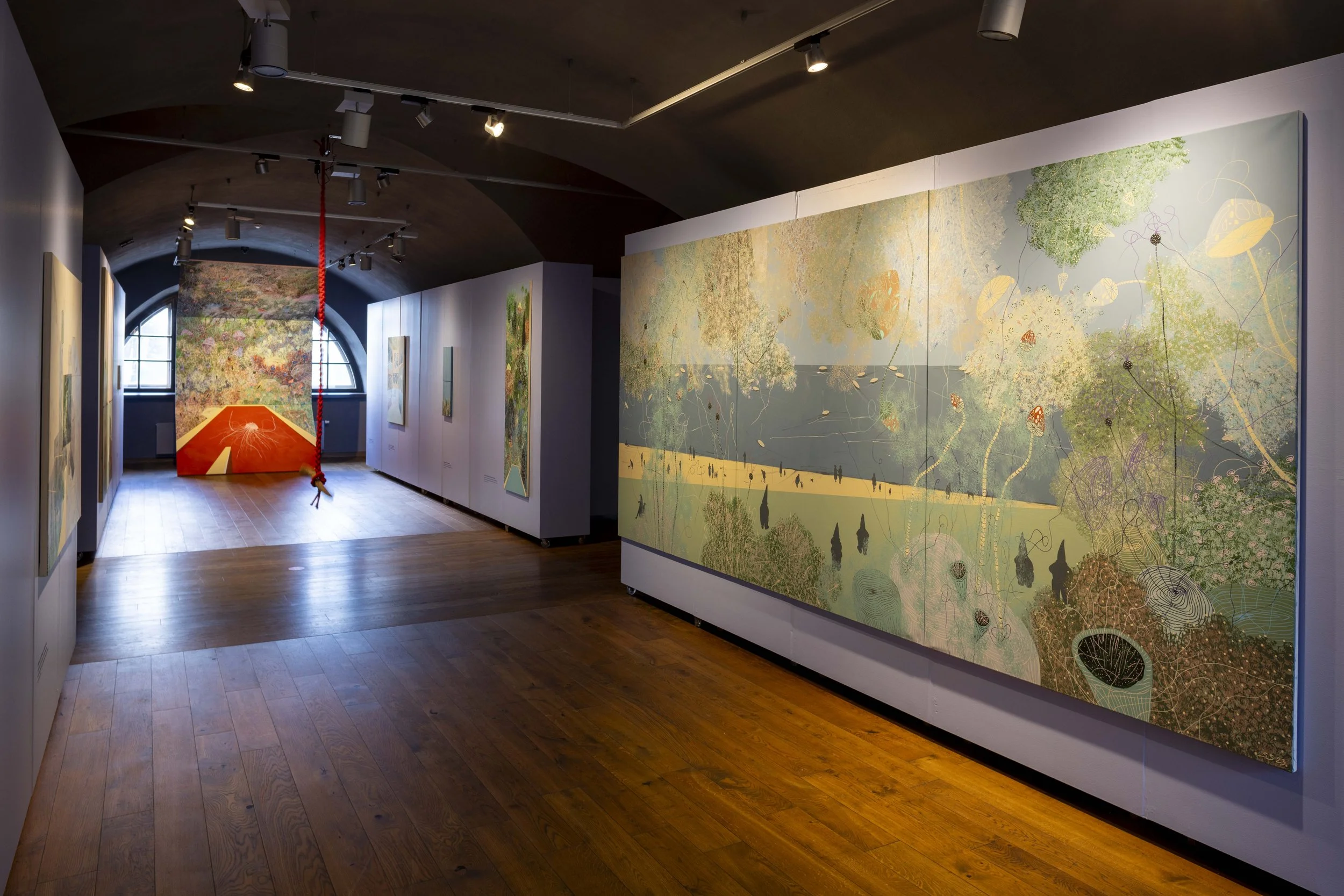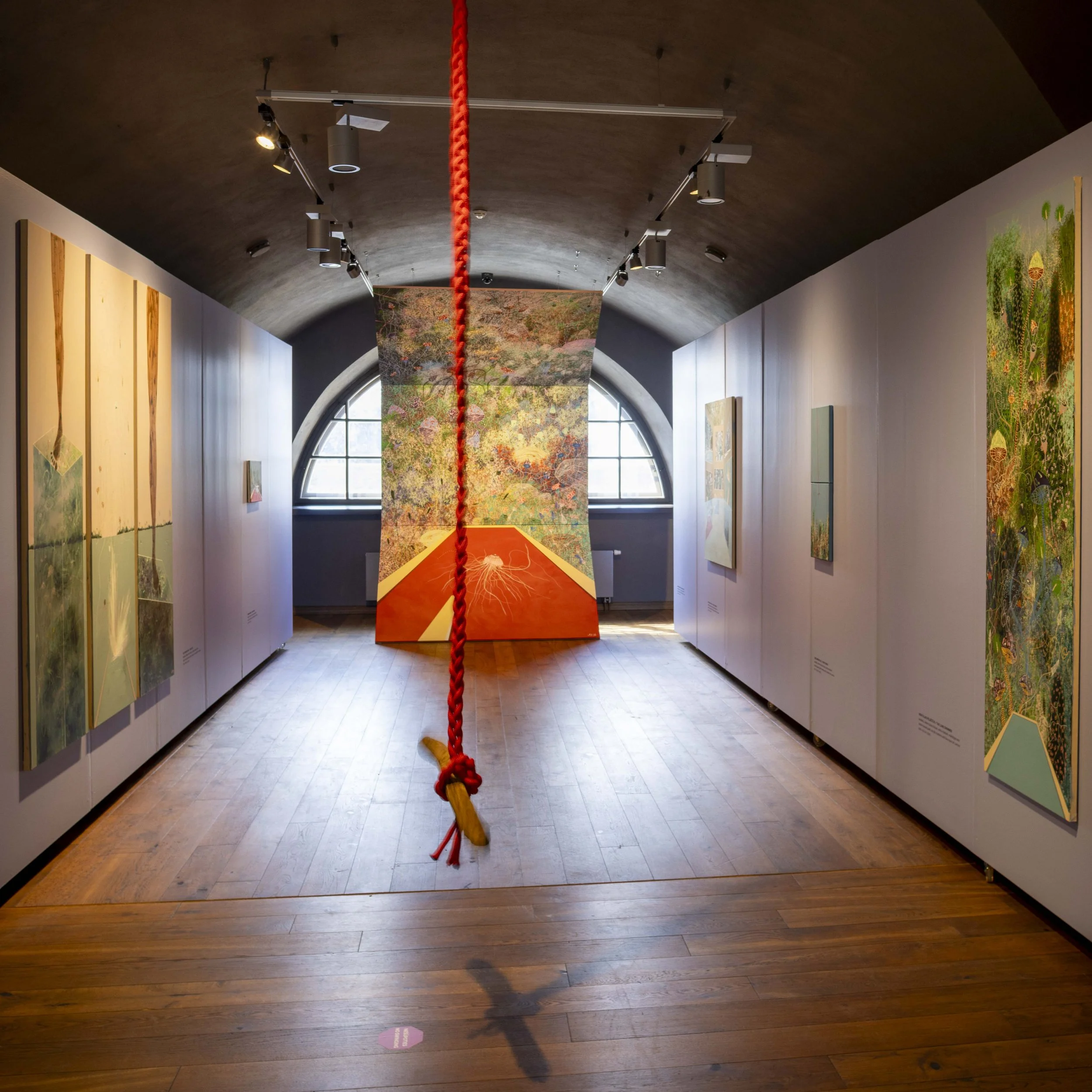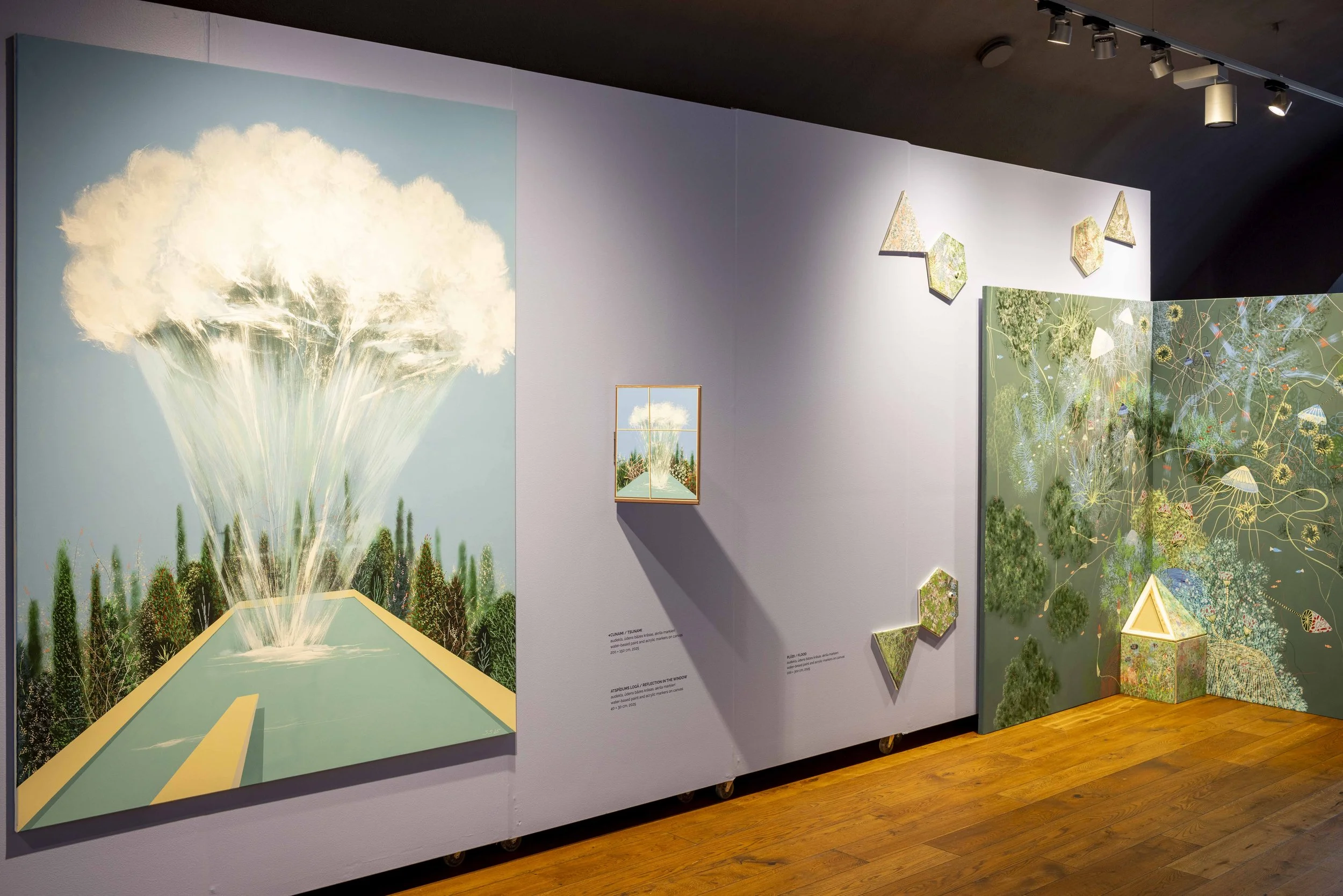solo exhibition “the night before”, Rothko museum, daugavpils, latvia
A: The ebb has stripped the shoreline bare. Perhaps it was never fixed at all. Imagine the sea caressing this coast in such a way only in your own lifetime. It looked entirely different to your grandfather.
B: I only imagine that I remember what now seems otherwise. It has all been and will forever be a semblance, for such a shoreline does not exist.
A: Look – in the surf, a golden fish! Now make a wish!
At once intimate and expansive, The Night Before is a personal meditation on new motherhood and on the fragile thresholds through which life continuously flows and overflows. I turn to hydrofeminist thought to explore the fluid and liminal boundaries that divide – and at times dissolve – our bodies and ideas, our choices, and our actions.
On the brink of ecological crisis, water rises as both witness and agent: primordial plants and fungi advance silently, swallowing houses, beaches, and pools. Within this swelling tide, the exhibition’s vocal “I” wavers, drifts, cools off, rocks back and forth, observes, and waits – hoping that what is tense and tangled might somehow find its way towards resolution.
Here, water is a realm of memory and transformation, of constant reoccurrence. It surges and recedes, transmutes one substance into another, preserves and encapsulates, submerges and resurfaces in endless cycles, to lay bare new yet fundamental truths about the inextricable entwinement of humanity and nature, while pulling us towards the great unknown concealed in its aquatic depths. To approach this unseen, to seize it, to hold it within an aquarium is both desire and impossibility.
The exhibition’s narrative resonates through keywords such as hydrofeminism, ecological crisis, fungi with eyes, pregnancy, motherhood, artificial insemination, and nine frozen embryos.
Sandra Strēle
Photo: Santa Sahatunova, Didzis Grodzs
A: Bēgums atkailinājis krasta līniju. Varbūt tā nekad nav bijusi fiksēta. Iedomājies, ka ūdens šo krastu būs šādi apskalojis tikai tavā laikā. Tava vectēva laikā tas izskatījies pavisam citādi.
B: Es tikai iedomājos, ka atceros to, kas šodien izskatās citādi. Tas viss ir bijis un turpinās būt tikai šķitums, jo tādas krasta līnijas nav.
A: Lūk, krasta viļņos zelta zivtiņa! Vēlies kaut ko!
Izstāde ir personisks stāstījums, kurā apcerēta kļūšana par māti, mākslinieciskās izpētes fokusā izvirzot hidrofeministiskas pārdomas par plūstošajām un pārplūstošajām robežām, kas mūsu ķermeņus, idejas, izvēles un darbības atdala citu no citas.
Ekoloģiskās krīzes priekšvakarā ūdens, pirmatnējie augi un sēnes nemanāmi aprij mājas, baseinus un pludmales. Izstādes “es” šajā laikā turpina šaubīties, atveldzēties, šūpoties, vērot un cerēt, ka viss saspringtais un sarežģītais kaut kā atrisināsies.
“Priekšvakars” ūdeni interpretē kā telpu, kur vienlaikus kaut kas rodas, aizplūst, pārtop no vienas substances otrā, uzglabājas, iekapsulējas, dzīvo, izdzīvo, ienirst, uznirst, lai vēlreiz atklātu ko jaunu par cilvēka un dabas attiecībām, kā arī censtos pietuvināties vilinošajam nezināmajam, kas slēpjas dziļākajos zemūdens slāņos. Piekļūt līdz šim neredzētajam, sagūstīt to un ievietot akvārijā.
Izstādes atslēgvārdi ir hidrofeminisms, ekoloģiskā krīze, sēnēm ir acis, grūtniecība, mātišķība, mākslīgā apaugļošana un deviņi sasaldēti embriji.
Sandra Strēle
Foto: Santa Sahatunova, Didzis Grodzs
